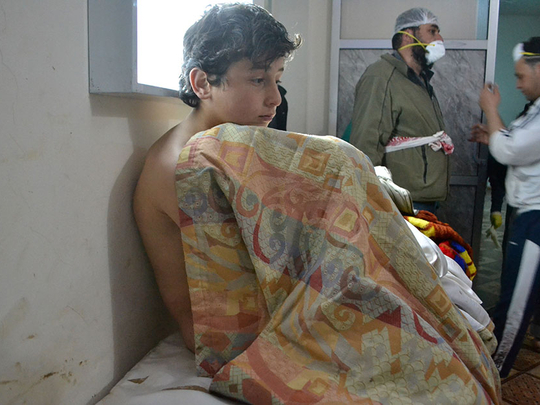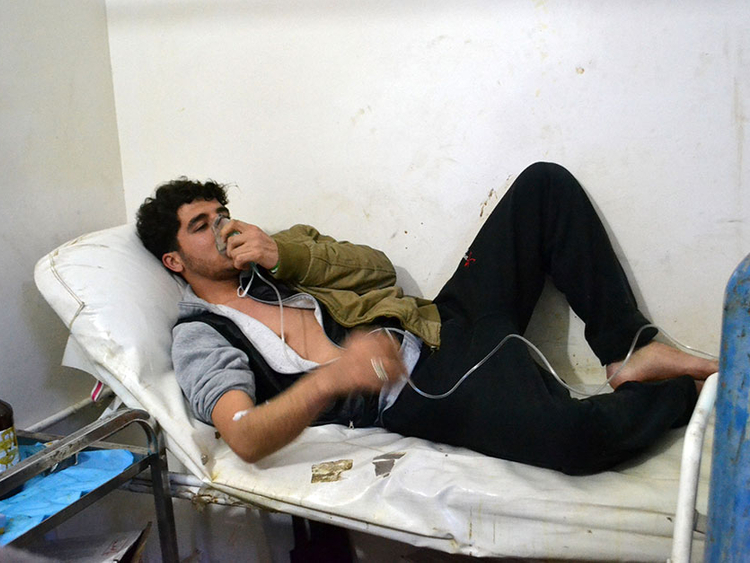
Geneva: UN war crimes investigators for Syria said on Tuesday they were ready to share names and details from their secret lists of suspects with any prosecution authorities preparing cases.
The move could pave the way for perpetrators of killings, torture and other atrocities on all sides to be brought to account someday. The aim is to sidestep the UN Security Council, where Russia and China have prevented the issue being sent to the International Criminal Court (ICC) for prosecution.
Paulo Pinheiro, chairman of the United Nations’ commission of inquiry, urged national authorities to contact the independent investigators who have compiled five confidential lists over nearly four years.
Pinheiro and his team, who include former UN war crimes prosecutor Carla del Ponte, said last month they planned to publish names of suspects and push for new ways to bring them to justice, in a radical change of strategy.
“We will not be releasing the list of names publicly now,” Pinheiro told the UN Human Rights Council said on Tuesday.
“We can best aid the pursuit of justice at this time through targeted disclosure. We will share names and information about specific alleged perpetrators with state prosecution authorities that are preparing cases to be heard before a competent and impartial judiciary,” he said.
Meanwhile, a group monitoring the Syrian civil war said on Tuesday government forces had carried out a poison gas attack that killed six people in the northwest, and medics posted videos of children suffering what they said was suffocation.
A Syrian military source described the report of an attack in the village of Sarmin in Idlib province as propaganda. “We confirm that we would not use this type of weapon, and we don’t need to use it,” the source said.
President Bashar Al Assad’s government has previously denied accusations that it has used chemical weapons in the four-year-old war. Officials were not available for comment.
An army statement said dozens of militants were killed in other areas of Idlib province overnight in clashes and attacks.
The Britain-based Syrian Observatory for Human Rights, which tracks the conflict through a network of sources, said the six dead included a man, his wife and their three children. It cited medical sources as saying they died as a result of gas from barrel bombs dropped late on Monday and that the chemical used was likely chlorine.
Dozens more were wounded in the attack, the Observatory said. Reuters could not independently verify the report.
More than 200,000 people have been killed in the Syrian conflict, which began in 2011 with protests against the rule of President Bashar Al Assad and has driven 3.9 million Syrians to flee their shattered homeland.
‘Extensive database’
Pinheiro said his team would share information from “our extensive database” to aid domestic investigations and prosecutions. Some countries have “universal jurisdiction”, which means they can prosecute crimes committed by foreign nationals abroad.
The investigators say their lists, kept in a UN safe, include military and security commanders, the heads of detention facilities and commanders of insurgent groups. They are based on their interviews with hundreds of victims and witnesses.
Syria’s ambassador Hussam Edin Aala responded angrily at the 47-member forum to the investigators’ move.
“The commission’s biased and selective approach and its continued accusations toward the government of Syria while turning a blind eye to crimes of terrorist groups such as the Nusra Front ... leads us to doubt the credibility, the motives.”
He said the commission had remained silent over “the responsibility of states such as Qatar, Saudi Arabia and Turkey in sponsoring terrorism”, he added.
The three nations Turkey, Qatar and Saudi Arabia have backed armed groups battling to oust Al Assad, whose main international allies are Russia and Iran.













